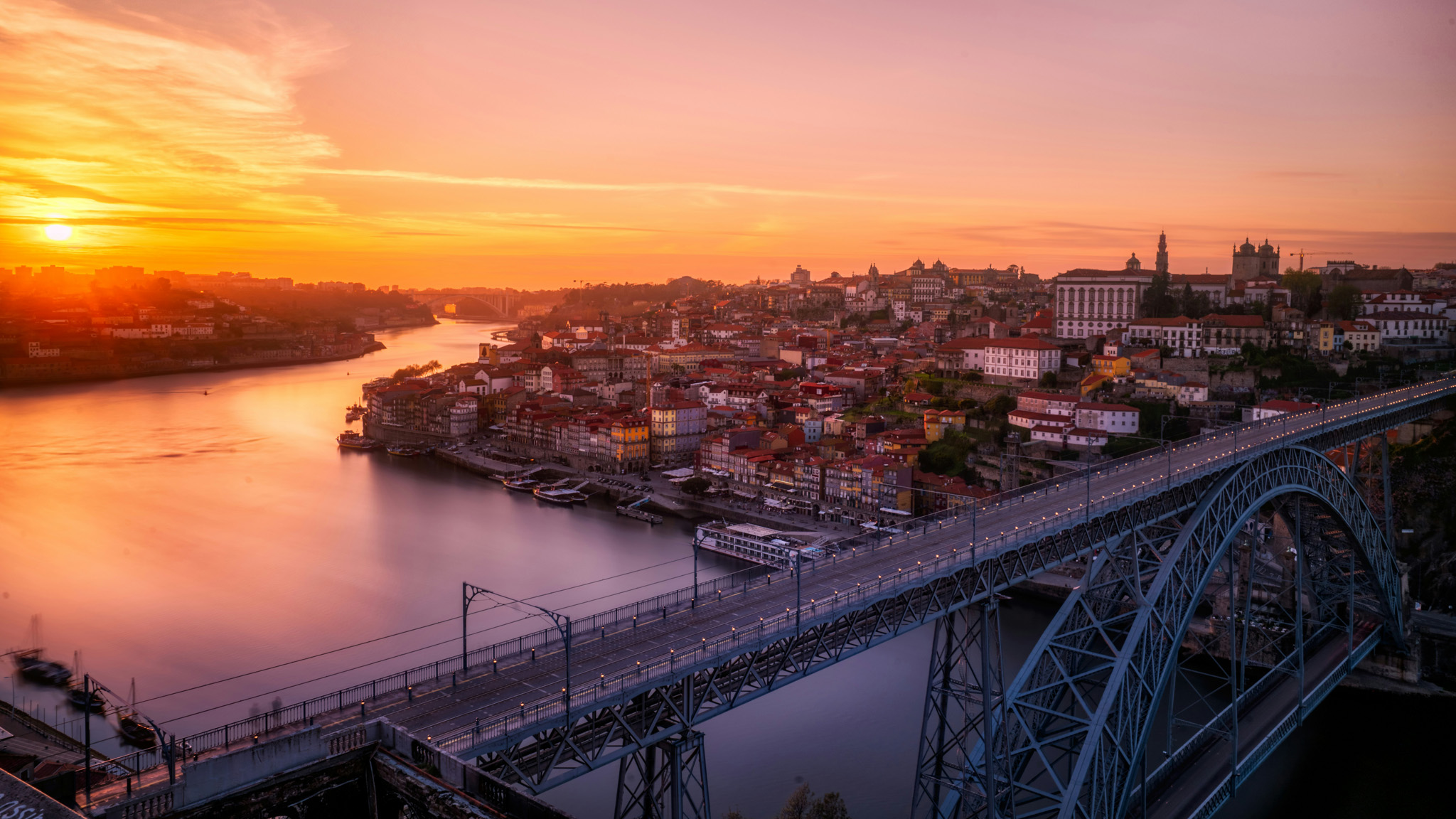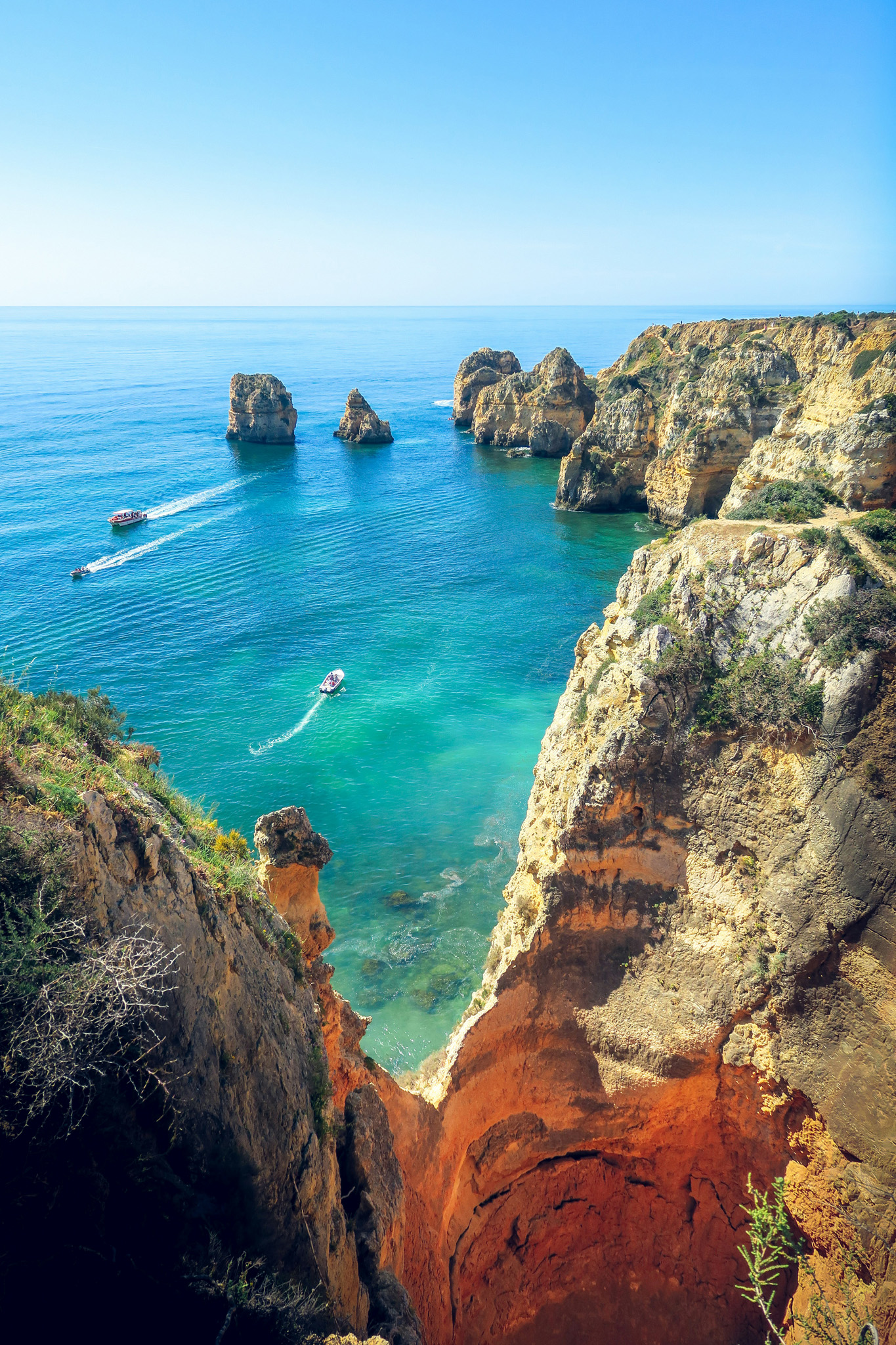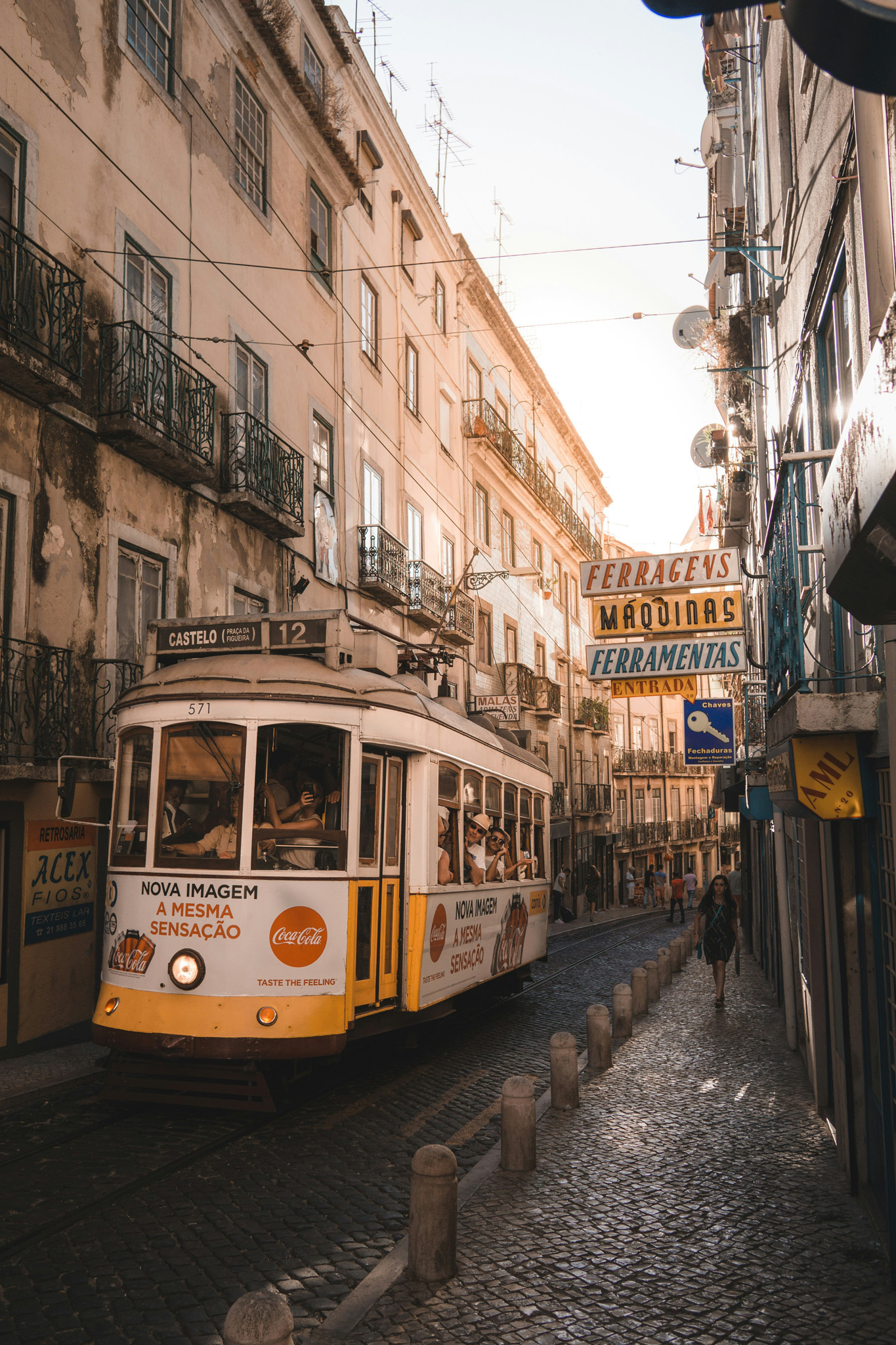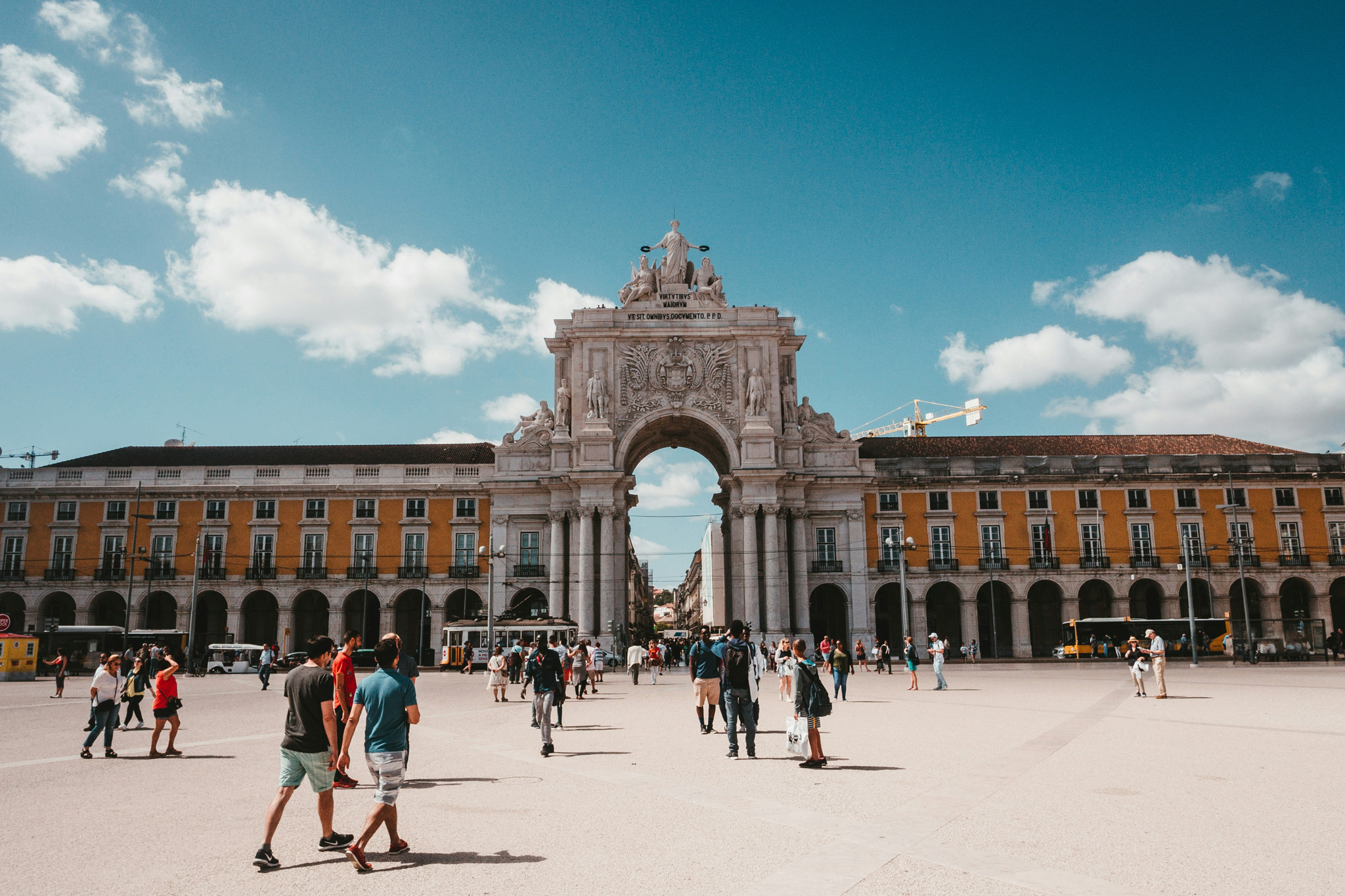Portugal – Destination Guide
Nestled on the Iberian Peninsula, Portugal is a country known for its stunning beaches, historic cities, charming villages, and delicious cuisine. With a mild Mediterranean climate, it’s a year-round destination offering both vibrant city life and serene rural retreats. From the rolling hills of the Alentejo, to the cosmopolitan streets of Lisbon, and the stunning coastal cliffs of Algarve, Portugal is a treasure trove of experiences waiting to be discovered. Whether you’re a history buff, nature lover, or beach-goer, Portugal delivers something for everyone.

Key Regions to Explore
-
Lisbon & Surrounding Areas
The vibrant capital, Lisbon, is Portugal’s beating heart, where historic neighborhoods, museums, and café culture blend seamlessly with modern life. The Alfama district’s cobbled streets lead to the São Jorge Castle, while the Baixa and Chiado offer elegant shopping and dining. Nearby, Sintra—a UNESCO World Heritage town—boasts stunning palaces like the Palácio da Pena and the Quinta da Regaleira. -
Algarve
Located in the southernmost region, the Algarve is famous for its golden beaches, dramatic cliffs, and crystal-clear waters. It’s a popular destination for beach lovers, golfers, and those seeking vibrant nightlife, particularly in Albufeira and Lagos. The coastal towns of Tavira and Alcoutim offer a more peaceful, traditional Portuguese experience. Don’t miss the Benagil Cave and the scenic Ponta da Piedade cliffs. -
Porto & Douro Valley
In the north, Porto offers historic charm and world-renowned port wine. Walk the Ribeira district along the Douro River, visit the iconic Ribeira Square, and explore the stunning Livraria Lello bookshop. Just inland, the Douro Valley is one of the oldest wine regions in the world, perfect for vineyard tours and tasting local Port wines. The landscape of terraced vineyards along the river is breathtaking. -
Alentejo
For a quieter, more rural experience, head to the Alentejo region, known for its wide plains, rolling hills, and medieval towns. It’s a paradise for foodies, with an emphasis on olive oil, cheese, and wine. Explore Évora, a beautifully preserved town full of Roman ruins, and the whitewashed villages of Mértola and Beja. The Alentejo coastline is less crowded but equally stunning, with wild beaches and charming fishing towns like Vila Nova de Milfontes. -
Madeira & Azores
Off the coast of Portugal, the Madeira and Azores archipelagos offer dramatic landscapes, lush gardens, and unique volcanic landscapes. Madeira is often referred to as the “Island of Eternal Spring” due to its year-round mild climate, with hiking trails, botanical gardens, and cliffs towering over the Atlantic. The Azores, a group of nine volcanic islands, offer a rugged, unspoiled environment, perfect for whale watching, hiking, and experiencing dramatic crater lakes like those at Sete Cidades on São Miguel Island.

Key Highlights
- Belém Tower and Jerónimos Monastery in Lisbon
- Palácio da Pena and Quinta da Regaleira in Sintra
- Algarve’s beaches, such as Praia da Marinha and Benagil Cave
- Douro Valley vineyards and river cruises
- Ribeira Square and Livraria Lello in Porto
- Fado music performances in Lisbon and Coimbra
- UNESCO World Heritage sites in Évora and Oporto
- Whale watching and volcano hiking in the Azores

Major Towns & Cities
- Lisbon – The capital and the largest city of Portugal, known for its historical landmarks, vibrant nightlife, and proximity to cultural sites.
- Porto – A charming city known for its port wine, historic buildings, and riverside charm.
- Funchal – The capital of Madeira, offering a mix of lush gardens, mountain views, and cultural experiences.
- Ponta Delgada – The capital of the Azores, with dramatic volcanic landscapes and outdoor adventure activities.
- Albufeira – A lively coastal town in the Algarve, known for its beaches, nightlife, and coastal cliffs.
- Évora – A UNESCO World Heritage city in Alentejo, rich in Roman history and architecture.

Arrival Airports & Transportation
- Lisbon Airport (LIS) – The largest and busiest airport in Portugal, with international flights arriving daily from all over the world.
- Porto Airport (OPO) – Serving Portugal’s northern region, this airport is well connected to major European cities.
- Funchal Airport (FNC) – The gateway to Madeira, with direct flights from Europe.
- Ponta Delgada Airport (PDL) – The main international airport serving the Azores archipelago.
- Train & Bus Access – Portugal has a well-connected train system, especially between major cities like Lisbon, Porto, and Faro. Buses and regional trains can take you to more remote areas like Alentejo and Algarve.
- Car Rental – Renting a car is recommended for exploring rural areas, especially in the Alentejo and Madeira.
Best Time to Visit
- Spring (March – May): Ideal for hiking, exploring vineyards, and enjoying outdoor activities. Mild temperatures and fewer tourists make this a great time to visit.
- Summer (June – August): The peak travel season, especially along the coast. Expect warm weather, long days, and crowded beaches, particularly in Algarve and Lisbon.
- Fall (September – November): The harvest season in Douro Valley, Madeira, and the Azores. The weather remains pleasant, and crowds begin to thin.
- Winter (December – February): A quieter time for visiting cities like Lisbon and Porto. The Algarve remains mild, but Madeira and the Azores are great for winter hiking, with temperatures rarely dropping below 15°C.

Practical Information
Currency
- Currency: Euro (€)
- Credit Cards: Widely accepted in major towns, cities, and hotels. However, in smaller towns, markets, and rural areas, it’s advisable to carry cash.
- ATMs: Available throughout Portugal, especially in urban areas and larger towns.
Languages Spoken
- Portuguese is the official language.
- English is widely spoken in tourist areas and major cities but might be less common in rural regions.
- Spanish is also understood in some areas, particularly near the Spanish border.
Visa & Entry Requirements
- Visa-Free: Citizens of most Western countries, including the EU, US, Canada, and Australia, can visit Portugal for up to 90 days without a visa.
- Visa Requirements: Check with local authorities for entry rules, particularly if traveling from outside the Schengen Area.
The official source for up-to-date information on Portugal’s visa requirements is the Portuguese Ministry of Foreign Affairs’ visa portal: https://vistos.mne.gov.pt/en

Food & Dining
- Portuguese Cuisine: Famous for bacalhau (salted codfish), pastéis de nata (custard tarts), port wine, and fresh seafood.
- Alentejo is known for olive oil, cheese, and wine.
- Food Markets: Explore local markets in Lisbon and Porto for fresh produce, artisanal goods, and regional specialties.
Tipping Culture
- Tipping is not mandatory, but it is appreciated. 10% of the bill is standard in restaurants.
- Tipping for taxis and hotel staff is also customary but not expected.
eSIM & Connectivity
- Portugal has good cellular coverage in cities and towns, but service may be spotty in remote areas.
- eSIM is available for visitors who need mobile data and/or a local number. Using an eSIM is our recommended choice while travelling anywhere in the world, and our recommended provider is Holafly. For more information on eSIMs, check out this blog.
Why Visit Portugal?
Portugal offers an unparalleled mix of rich history, breathtaking landscapes, and delicious cuisine. Whether you’re relaxing on the Algarve’s beaches, hiking through the Douro Valley’s vineyards, or exploring historic cities like Lisbon and Porto, Portugal is a welcoming destination filled with cultural charm, stunning nature, and warm hospitality.


